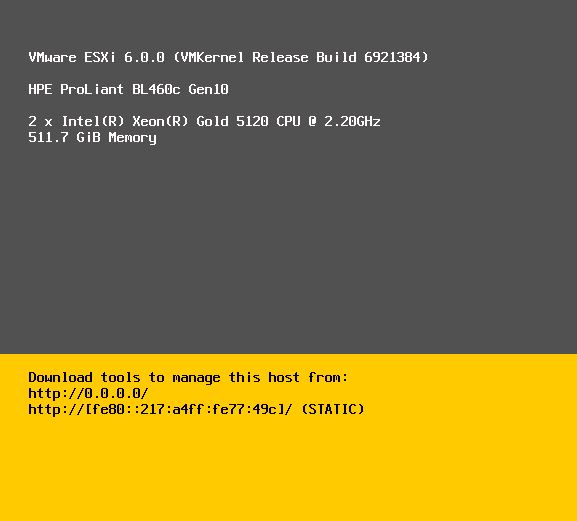
After understanding basics of VMware vSphere components it’s now time to Install and Configure VMware ESXi 6.0. Make sure you’ve gone through various editions of vSphere before purchasing and installing it. There are few system requirements that must be met before you can install ESXi server.
There are different ways to install ESXi server. You can use interactive installation (CD/DVD, USB drive, and PXE boot), scripts or auto deploy. Here, I will use interactive method using CD/DVD media to install ESXi server. You can download installation ISO image from VMware. Let’s begin the installation. First, make sure the server is configured to boot from CD/DVD. Insert CD/DVD in to the DVD-ROM or map ISO image to virtual CD/DVD drive and boot the server from ISO image.
Once you start the server with ESXi installation media, you will be presented with ESXi standard boot menu as shown above. Choose ESXi standard installer to start the ESXi installer. Press [Tab] to toggle the selection and press [Enter] to choose the selection. As you can see above, you also have option to booth from local disk.
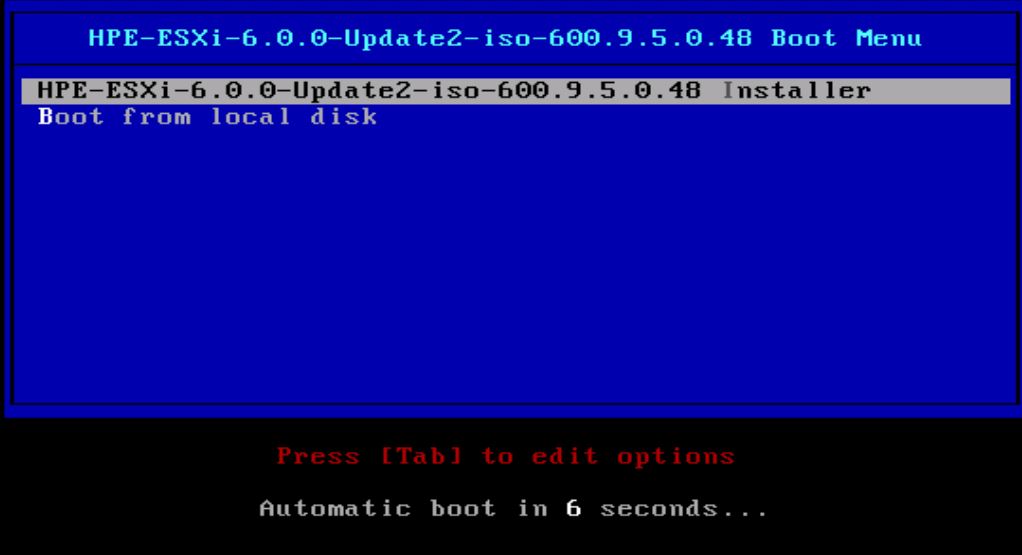
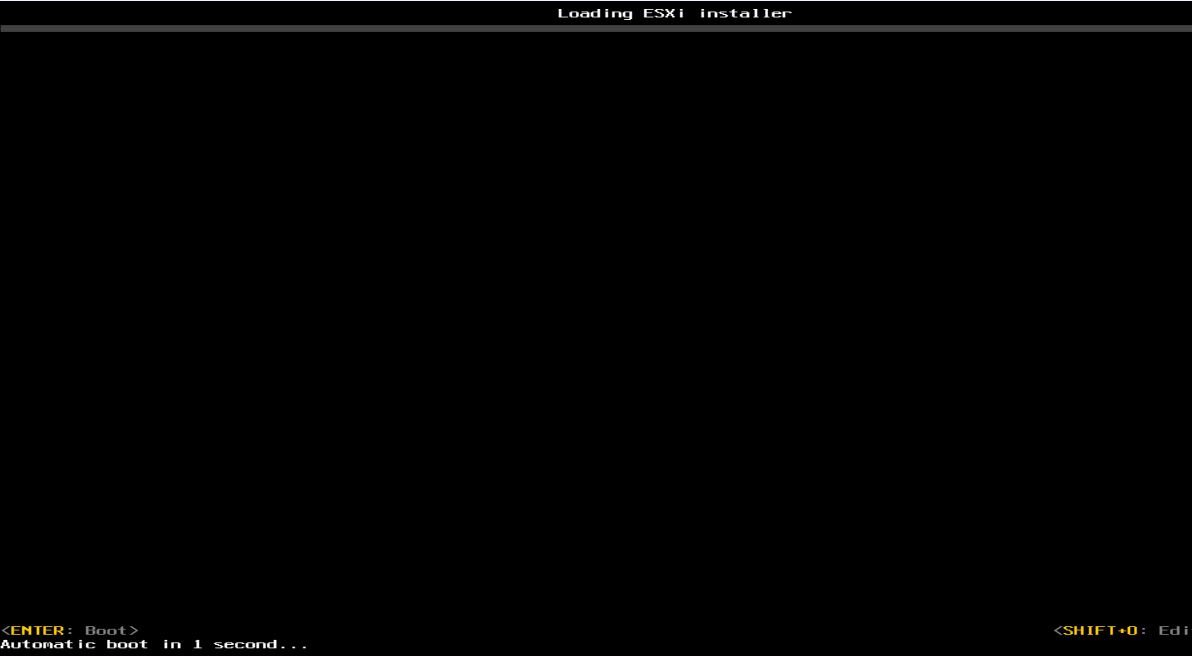
Welcome screen appears as shown above. Press [Enter] to begin the installation of ESXi server.
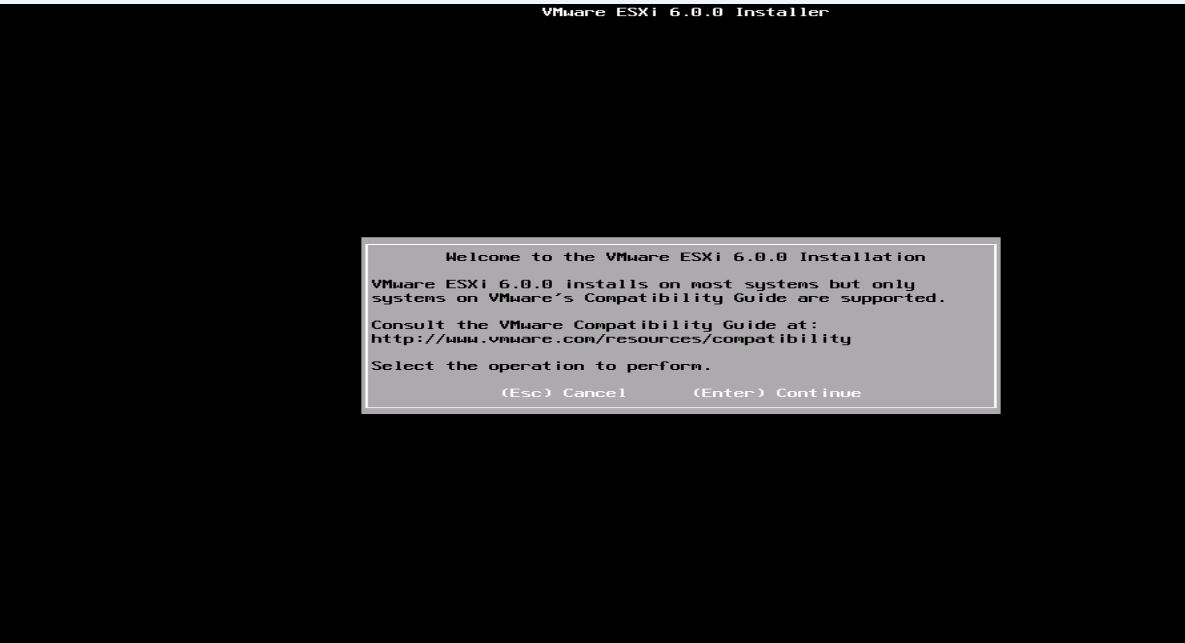
Press F11 to accept the license agreement.
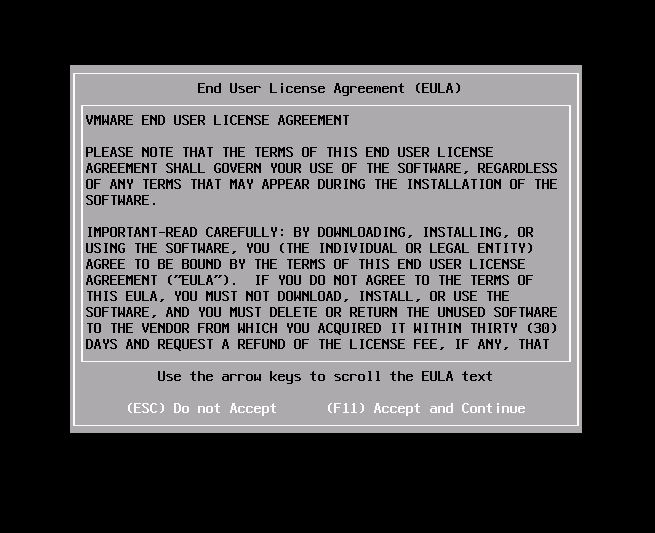
Choose the storage and press [Enter] to continue. As you can see above the disk type is VMware Virtual S, this is because I am installing ESXi server on a VMware Workstation virtual machine. You can press F1 to see more details about the disk. If you are installing ESXi server on a local SAS storage, it will be listed as remote devices.
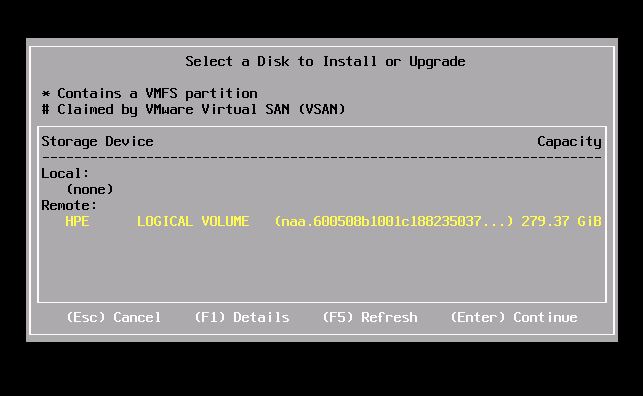
Note :- Here we have Raid configuration so it shows as remote .
Choose the keyboard layout. Press [Enter] to continue.
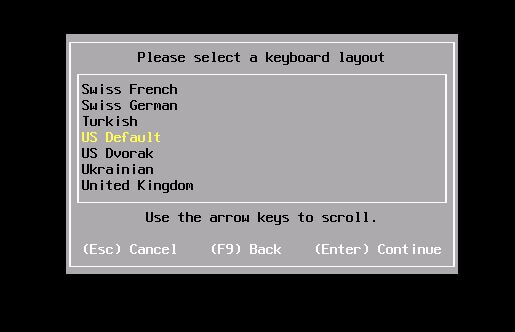
Enter the password for root user account. The password must be at least 7 characters long. Press [Enter] to continue.
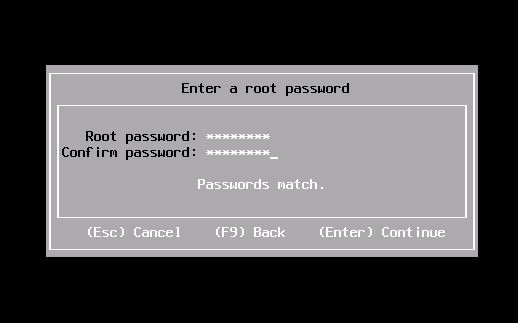
To confirm the installation press F11.

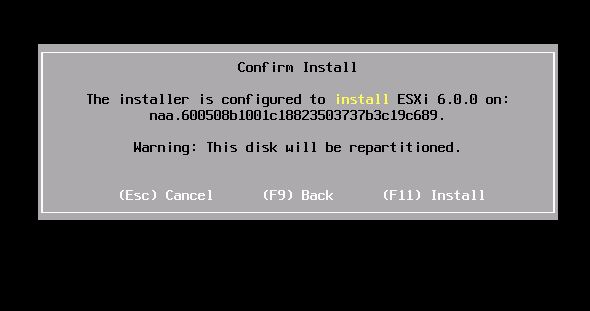
The installation now begins.
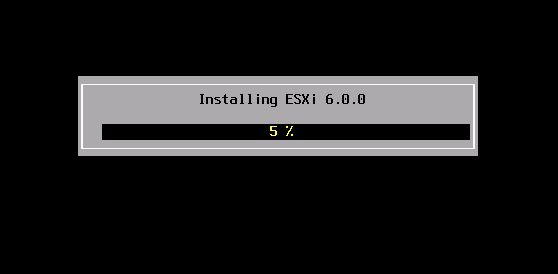
Press [Enter] to reboot and complete the installation.
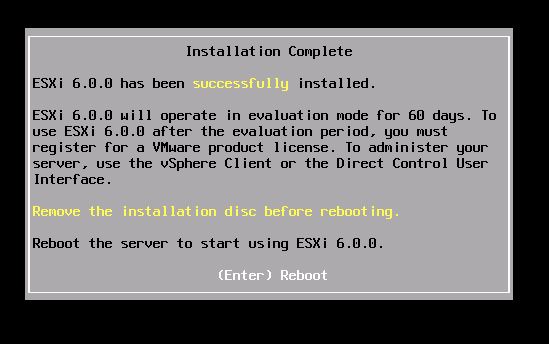
After the reboot, you can see the Direct Console User Interface (DCUI) above. You can see the ESXi build number, memory and processor information and IP address. As you can see above by default, ESXi is set to receive IP from DHCP server. You can press F2 to login to DCUI to change IP address, DNS, hostname and other information.
